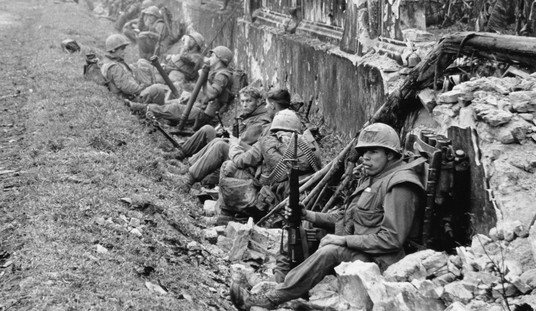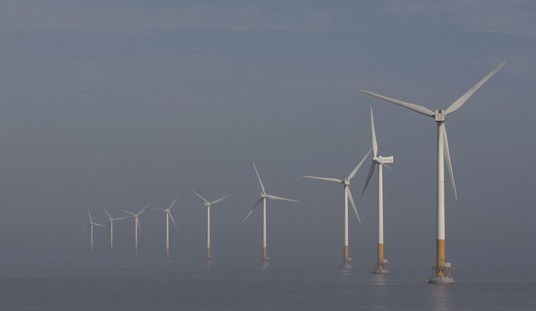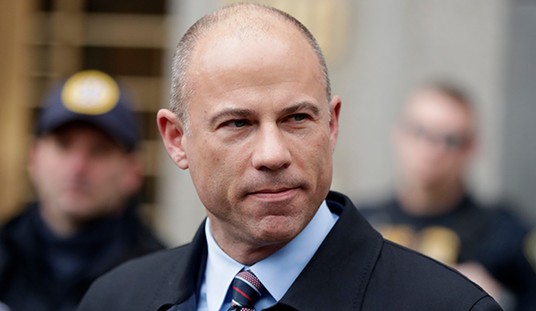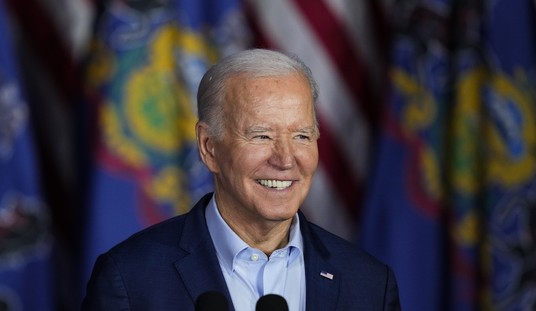Tonight, President Obama will speak to the country from the Oval Office for the first time in an effort to recover from his disastrous response to the BP oil spill in the Gulf of Mexico. The president will try to push back against the perception among the American people that he and his administration don’t know what they’re doing when it comes to the spill—a perception that is particularly damaging because it happens to be true.
In this context, Obama’s recent declaration that he’s looking for an “ass to kick” was a revealing public relations gaffe. It was an expression of frustrated impotence and clumsy anger from a president without solutions—as if throwing a temper tantrum would put things right, or at least get people off his back. It was also a sign of desperation: Obama must find that “ass to kick” as soon as possible, and he knows it.
Inevitably, the next few months will bring a major crackdown from the White House and its allies on the energy industry and oil companies. When you don’t have any answers, the easiest thing to do is find another villain and shift the blame.
So what should the president have done differently? He should’ve been honest with the American people from the beginning, both about the risks involved and the lack of easy answers.
Initially, Obama treated the incident as the industrial equivalent of the cinematic Ark of the Covenant: he assured us that top men had been marshaled to the task. But these experts quickly proved divided, and not particularly competent, hurting the president’s credibility.
Then the president tried to show that he shared America’s frustration with the circumstance by behaving angrily on television. But what earthly good can come of the president following Spike Lee’s preferred approach and uncorking some ersatz agita? People at BP haven’t been dawdling aimlessly, in need of an Asskicker-in-Chief.
Every unbiased observer can agree that BP has made major mistakes, mistakes for which they must be held accountable. But fearful of bearing the blame for a mismanaged recovery effort, it was the White House that chose a half-measure partnership arrangement with the company. Partnering with a corporation while simultaneously making childish threats and launching less-childish Justice Department investigations is never a smart idea if the aim is quick results.
This type of inept PR-driven approach is typified by the decision to pursue dispersal of the oil—an approach approved by the Environmental Protection Agency over the objections of Louisiana officials—which creates less of a surface level appearance of oil on the coastline but could result in far more damage below the surface, destroying the biological life cycle with massive and far-reaching effects.
If we were led by individuals more interested in operational solutions than public relations, partnership with local officials and first responders could’ve been handled in a much more effective manner, tasking missions quickly for results which could’ve saved the taxpayers millions and protected the shores of Louisiana.
In the wake of any disaster, leaders have a short amount of time to create a trust bond with the people and cement their problem-solving role: you must be honest, you must be on the ground, and you must be in charge. Drawing the wrong lesson from the Katrina debacle, Obama tried to convey an impression that minimized fears, asserting that everything was under control from the first moment.
Yet this situation is a total disaster, with open-ended potential for ecological and economic damage. And when the president claims that top men were on the case before heading out for a round of golf, leaving Joe Biden and Rahm Emanuel to play with water pistols as the oil continues to gush, it’s natural for Americans to worry: could this be worse than he’s letting on?
During the 2008 campaign, the mainstream press described the young Senator from Illinois as a cool, unflappable professional, selling the idea of “no drama Obama” to the country. Americans want the president to be a competent professional and stable leader, not a detached academic or a font of grandstanding bluster.
Instead, we have a president who lacks the core attributes of a battlefield commander: confidence, decisiveness, boldness, and honesty. By not acknowledging the danger in the BP situation, Obama opened a major trust gap with the American people. Where Bush’s failure on Katrina was a nicked artery, Obama is now experiencing death by a thousand cuts.
It’s hard to imagine a worse outcome for Obama. His whole project as president is to convince Americans that they should learn to trust government with a much larger role in society. This case just got a lot harder for him to make.
Originally published at The New Ledger. Follow Benjamin Domenech and Francis Cianfrocca on Twitter.














Join the conversation as a VIP Member